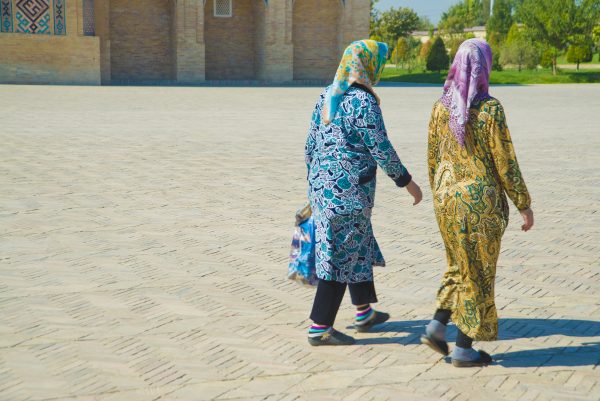Polygamy in Kyrgyzstan
In June, MPs in Bishkek – in a decision kept secret for two months – decriminalised the offence of marrying multiple wives. When parliament reopened, President Žaparov referred the measure back for review, calling it humiliating. But polygamy remains a far from rare practice, with unions registered only in mosques, even by prominent figures.
Bishkek (AsiaNews) - In recent months, there has been much debate in Kyrgyzstan about the possible legalisation of polygamy, after MPs in the Žogorku Keneš approved a package of amendments to the Criminal Code in June, before closing for the summer recess, including the removal of criminal liability for additional wives.
This decision was only made public two months later, when President Sadyr Žaparov postponed the bill until the reopening of parliament, stating that ‘polygamy humiliates women and violates the rights of children’. The affair provoked very passionate reactions, as it is a recurring theme throughout Central Asia, where the practice of having a “second wife” is still widespread, despite formal prohibitions.
The Attorney General and the Human Rights Ombudsman also contested the abolition of the penalty for polygamy, along with several other state institutions and social structures. MPs attempted to justify themselves by stating that the issue had not actually been discussed in parliament and that the amendment had “appeared” in the document after the vote.
For the time being, therefore, Article 176 of the Code remains in force, according to which cohabitation with two or more wives “under the sole financial responsibility of the husband” is punishable by fines and community service.
Polygamy remains a common practice in Kyrgyzstan, even among well-known families. In 2017, the then Grand Mufti of the country, Chubak Zalilov, publicly acknowledged that he had taken a second wife, and businessman Askar Salymbekov also spoke about his double marriage, as did the former human rights ombudsman, Tursunbaj Bakir uulu, who stated that ‘if the wife is ill or unable to bear children, there is no need to divorce, but with her consent, a second wife can be taken, who will not only be a wife, but will become the sister of the first’.
Similar situations occasionally come to light among politicians, such as former President Kurmanbek Bakiev, who during his term in office from 2005 to 2010 was officially married to First Lady Tatiana Bakieva, who accompanied him to all official meetings, while his children were entrusted to his “second wife” Nuzgul Tolomuševa, with whom he fled to Belarus after the overthrow of his regime, where he still resides.
Based on these trends, even at the highest levels, violations of the rule of monogamy are not usually reported to the police “even by first and second wives against subsequent wives”, as human rights activists claim, and there are no notable cases of punishment under Article 176. Yet, according to Mukhajo Abduraupova, an activist from Oš, dozens of women privately seek help to cope with unbearable polygamous cohabitation.
As Mukhajo recounts, ‘the man enjoys himself with one wife and then with another, keeping all the property in his name and celebrating Muslim marriages in the mosque, then denying the existence of multiple marriages to the police and hiding behind religious rituals.
The “previous” wives are often marginalised and humiliated within the family, and are often left in conditions of absolute poverty’. Obviously, there are no official statistics on the prevalence of polygamy throughout Central Asia, where all five countries de jure recognise only one marriage, that registered by the municipal registry offices.
Subsequent “unions” are blessed with the Muslim nikah, which has no legal value, but there are still several thousand in each Central Asian country.
Multiple marriages are often the result of labour migration, with wives living in two or more countries where the husband goes to support them all (when he can) together with their children, who are therefore deprived of many rights.
Official wives often put up with these situations in order not to lose their social status, because divorce would result in total marginalisation, with serious consequences for their livelihood.
05/12/2025 09:43
17/01/2024 10:07
09/04/2025 10:29
11/12/2023 09:10
25/11/2022 11:42







.png)










